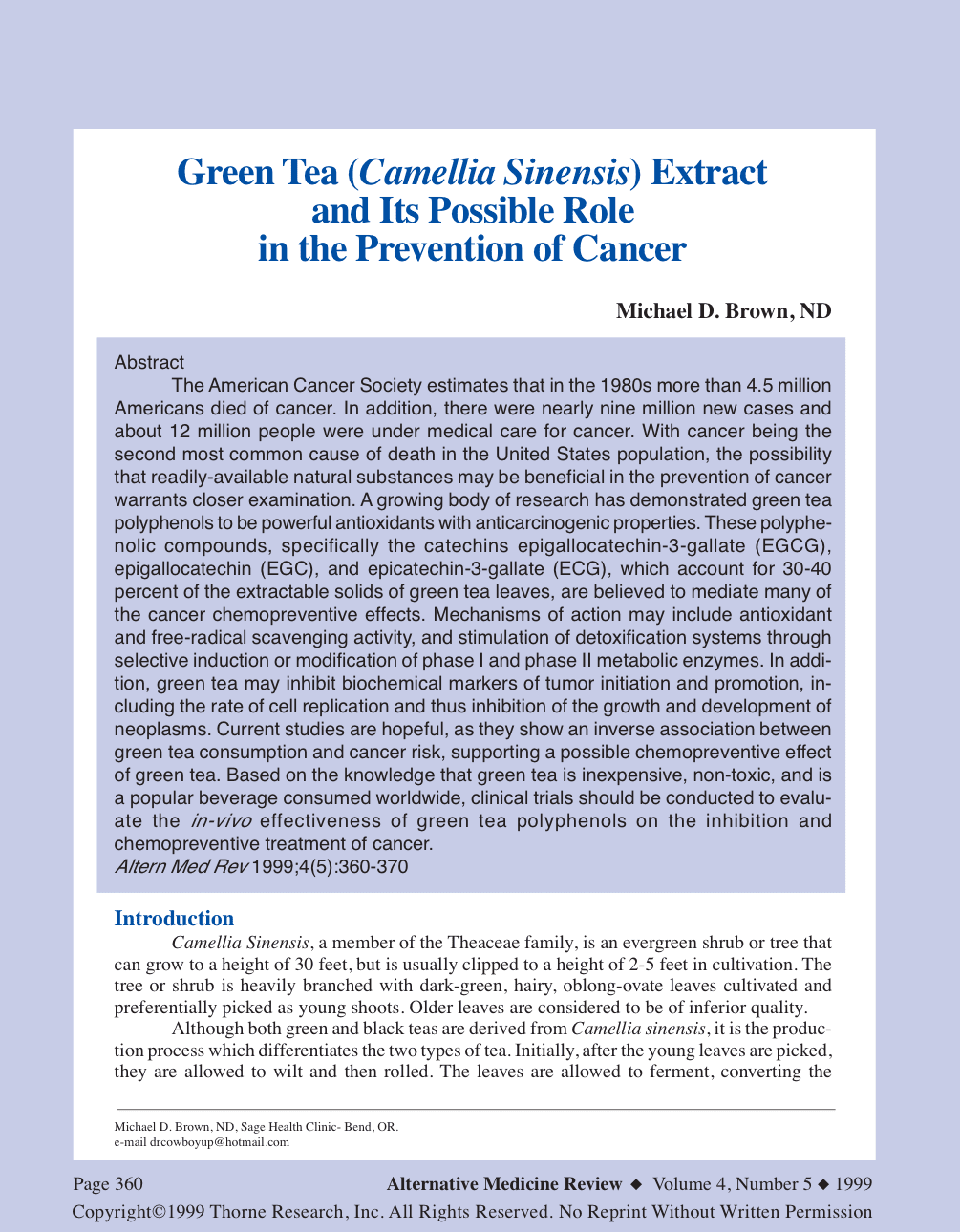Abstract
The American Cancer Society estimates that in the 1980s more than 4.5 million Americans died of cancer. In addition, there were nearly nine million new cases and about 12 million people were under medical care for cancer. With cancer being the second most common cause of death in the United States population, the possibility that readily-available natural substances may be beneficial in the prevention of cancer warrants closer examination. A growing body of research has demonstrated green tea polyphenols to be powerful antioxidants with anticarcinogenic properties. These polyphenolic compounds, specifically the catechins epigallocatechin-3-gallate (EGCG), epigallocatechin (EGC), and epicatechin-3-gallate (ECG), which account for 30-40 percent of the extractable solids of green tea leaves, are believed to mediate many of the cancer chemopreventive effects. Mechanisms of action may include antioxidant and free-radical scavenging activity, and stimulation of detoxification systems through selective induction or modification of phase I and phase II metabolic enzymes. In addition, green tea may inhibit biochemical markers of tumor initiation and promotion, including the rate of cell replication and thus inhibition of the growth and development of neoplasms. Current studies are hopeful, as they show an inverse association between green tea consumption and cancer risk, supporting a possible chemopreventive effect of green tea. Based on the knowledge that green tea is inexpensive, non-toxic, and is a popular beverage consumed worldwide, clinical trials should be conducted to evaluate the in-vivo effectiveness of green tea polyphenols on the inhibition and chemopreventive treatment of cancer. Altern Med Rev 1999;4(5):360-370

